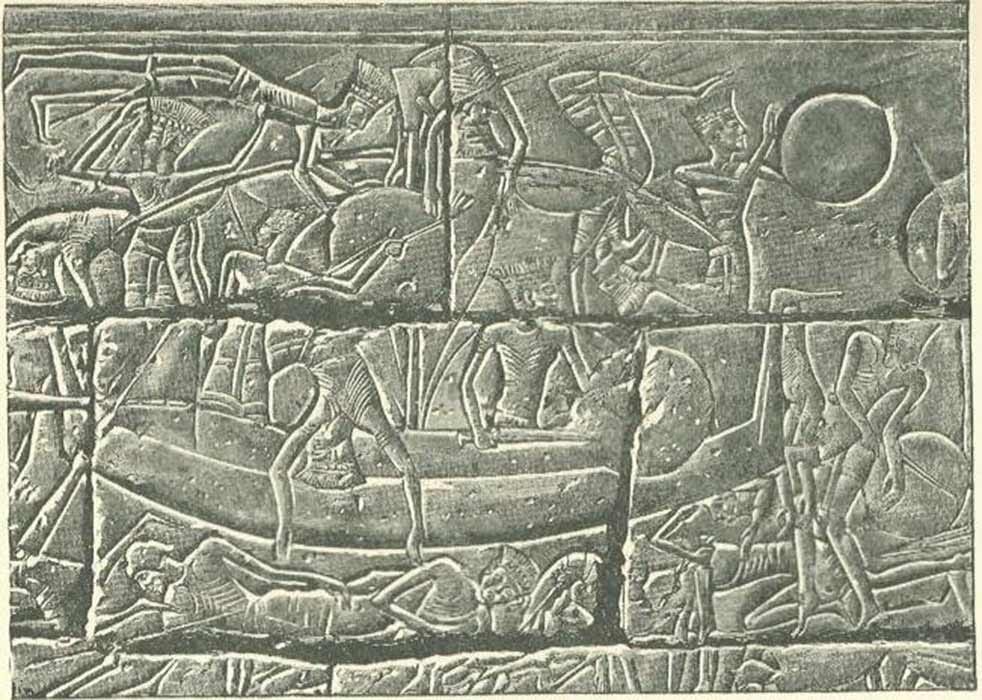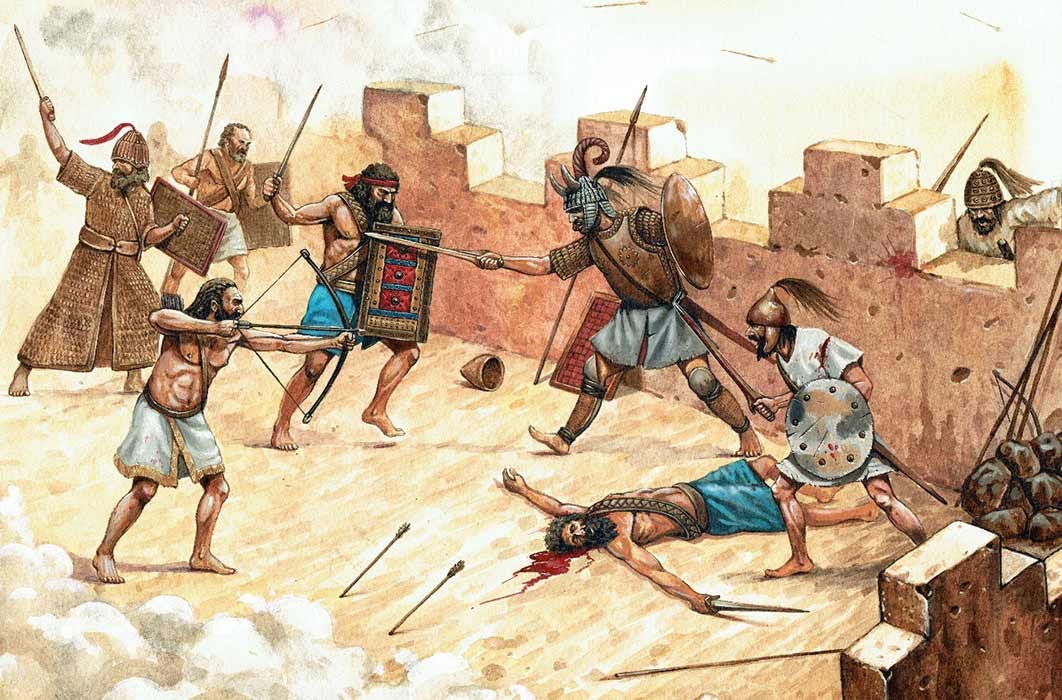The Danuna of the Sea People and their Connection with the Tribe of Dan
Premium Article
Author: Petros Koutoupis
Scholars tend to lean more on archaeology and ancient Egyptian inscriptions to seek the identities of the elusive Sea Peoples. This is not a simple endeavor, but in summary the Sea Peoples were an enigmatic confederacy of seafaring raiders from the central and eastern Mediterranean who sailed east and invaded Anatolia, Syria, Canaan, Cyprus, and Egypt toward the end of the Late Bronze Age Period. The term used to refer to these foreign migrants is derived from ancient Egyptian sources, providing numerous documented accounts of battles involving them.
It should be noted that not all of the Sea Peoples originated from the sea, but also from the land such as Anatolia (modern day Turkey). The Sea Peoples have been credited for devastating the region, bringing nations to a downfall and whole empires to an end. They pillaged and plundered and burned whole cities as they passed through. They were also looking for a new home and opportunities.

Working through Egyptian sources across a number of pharaohs’ reigns, scholars have isolated but not entirely identified a total of ten tribes or groups of Sea Peoples who were said to have wreaked havoc in Egypt. Why Egypt? It was the center of wealth, power and civilization in the then economic world. It would have been an attractive location for anyone looking for new opportunities.
The Danuna in the Armana Letters
One of those tribes were identified or named as the Danuna. The earliest reference to the Danuna (also referred to as Denyen, Danunites, Danaoi, Danaus, Danaids, Dene, Danai and Danaian in Egyptian, Hittite and Classical sources) come from the Amarna letters which date to the mid-14th century BC. The Amarna letters or Amarna tablets are an archive of clay tablets primarily consisting of diplomatic correspondence between the Egyptian administration and their representatives in the Levant. The letters are written in an Akkadian cuneiform script which was a common script and language used throughout both Mesopotamia and Canaan during the third and second millennium BC.




